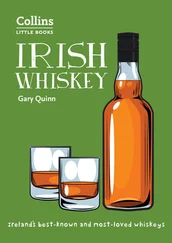But he could find no opening to say any of this.
“You’re awfully quiet, Leo,” said Keith. “What Bob just said about how difficult it is to stay sober when there’s all this alcohol being pushed at us all the time, what do you think about that?”
Bob was the one who had been annoyed by Leo’s not smoking at the smoking station. He was a pilot for a major airline.
“It sounds like Bob needs to move to Mecca if he wants to stop drinking.”
“Well, how about you?” said Keith. “Do you want to stop drinking, stop using drugs? Don’t you see that that’s what got you here?”
The don’t you see part pissed him off. “Look,” he said, addressing Keith, not all the men in the room. “Clearly I like to smoke more pot than some people do. More than most people. And all that drinking was gross, I guess. Yeah, it was gross. It could have been Windex, for all the relief it brought me. I got in way over my head. So I should probably stop all that. But that’s not exactly how I ended up here.”
“How’d you end up here, then?”
“My sisters were worried.”
“Well, wasn’t it the drinking and using that had them worried?”
“I think it was more the unreasonable elation, the no sleep, the delusions of reference and grandeur.”
Keith squinted at Leo. Great, a vocabulary guy, Leo could pretty much see him thinking.
“But let’s talk about what came after that — the alcohol and the marijuana? The not getting out of bed?”
Fine, but that seemed to Leo beside the point. Or at least, not as important as what had come before. No one had tried to intervene on him when his head was full of light and links. They told him to quit talking so fast, not to take himself so seriously. But they could find no way to arrest his ascent. Each mean tether snapped at the pull of his racing self-regard. They’d waited until he was brought low. And he thought he knew why this was: they were jealous.
Now that he was past that, he could see that he’d been, at times, obnoxious about his insights, and that he’d generally overshared. And he was willing to concede that some of his thoughts, at the end there, were straight-up paranoid. But there had been something; he had been onto something real. How it looked to others shouldn’t really matter. And what they wanted him to do here was give all that up and aim for what they called serenity. And that would be great — water lapping at a shore, all of that — but he knew it would never be his. He tried again, addressing the whole room. “I do see that I am unwell somehow. Sometimes I feel like I’ve got my hands around the truth, you know? And when that feeling goes away, when it’s replaced by its opposite…well, I feel just terrible then. The gloom gets so deep it’s like I can’t see. I feel like a teacup that’s certain to shatter; my mind goes over and over the same terrible data. And then, so, yes, maybe I use the pot and the drinking to treat that, to escape from it. Maybe that’s a bad system. But the pot and the drinking — they’re not the root complaint or final cause or underlying issue or whatever.”
Keith seemed to be waiting for someone to respond. No one did.
“Wallace.” Keith prompted one of the men. “I know you said depression is something you’ve battled. Can you speak to what Leo just said?” Wallace was a heavyset black veterinarian from Tacoma with kind eyes and large hands.
“Not really,” said Wallace. “That teacup-about-to-shatter thing, that sounds a little different than what I got.”
“I heard you caused trouble in Small Group today,” said James as they lay in their separate beds in the blue of the room.
“Yeah. That didn’t go the way I was hoping.”
“You have to be careful around here, you know? Tell them what they want to hear, but don’t go overboard.”
“I couldn’t tell them what they wanted to hear. I don’t think I’m supposed to be here, James.”
“Couldn’t that be, you know, denial?”
Coming from James, the question didn’t make Leo defensive. “Could be, I suppose. But I think there’s something worse going on.”
“Worse?”
“Worse than the getting fucked up, you know?”
“Like you’re crazy?”
“Yeah. Well, like I was crazy. Now I kind of want the crazy back, because it felt better than what it left behind. But I can’t ever have it back, because now I know it was…well, I was the only one in that world. I was all alone. Being alone is like being dead.”
“How crazy? Gimme an example.”
And because Leo was certain that James was exactly who he appeared to be, he started talking, telling James all the things he couldn’t tell the doctor (because there was something fishy about that doctor) and that he couldn’t tell his sisters (because they loved him and couldn’t help and would only worry that their little brother was a late-onset schizophrenic).
He started with the truth holes. It was the first time he had tried to explain the phenomenon to anyone. He saw that that phrase, truth holes, was kinda batshit. But what else would you call them? And what about for the first eight, ten years of his life, when loving parents encouraged his obsession with dragons and secret worlds and animals in vests who poured tea and drove motorcars and who gave him to read Tolkien and Susan Cooper and the Brothers Grimm and Madeleine L’Engle and C. S. Lewis? Is a boy supposed to leave his imagination on the side of the road when he boards the bus to manhood?
Truth holes: Five or ten times a day, a small zone in Leo’s field of vision (about the size of a pocket watch held at arm’s length) would flare and then become soaked in light and meaning. Leo would get drawn in, and within a moment, a bridge would emerge from the truth hole, a cable or cord connecting him to some other patch of knowledge or information. It actually didn’t feel all that weird — it felt like some sort of communication device that might be prosaic in the twenty-second century. The knowledge and information wasn’t abstruse, and it was never bossily delivered. It wasn’t even from the future or anything stupid like that, and in those moments Leo didn’t feel as though he was understanding Mayan or Martian or Kwakiutl. But he was definitely taking on information via a very broad band.
“I think I know the kind of thing you’re talking about,” said James. He recalled a summer’s day two years earlier when the sun spangled into ribbons as his son’s little feet raced across the wet sand of the wide beach at Manzanita. “My heart filled to bursting. That was love. Love for Caleb. Pure. Best drug ever, actually. Maybe that’s the sort of privileged information you’re talking about. Everyone’s heart should fill to bursting sometimes. But ten times a day sounds clinical. Maybe you were smoking too much pot?”
“Almost certainly. Or maybe I’m not smoking enough now.”
“You still seeing them?” asked James. “The truth holes?”
“Not in a while, no.”
“Then, honestly, that doesn’t sound that crazy.”
“Well, it went on from there.” At first it was great; those shining months he had come through, when sleep was just a bowl of fruit he took a plum from and everyone brought him news and it all seemed to link up somehow. He wrote without ceasing. Letters and manifestos. Sonatinas and villanelles. Household signage. Short stories. Shorter stories. Tiny little plays. Menus for banquets he would like to attend. Haikus about neighbors. Thank-you notes to people who would not expect them. Abstracts for operas. He wrote a backgammon column, a self-defense manual, and a monograph ( On Outwitting Pretend Humans on the Telephone ). He wrote letters to advice columns and to corporate headquarters and to his congresspersons and to newspapers. For his nieces in New York, The Memoirs of Señor Skrapits, the Squirrel in 7A. Back then, the sunlight off the hanging pots meant something; the way the worms writhed on the wet sidewalk after a rain meant something; even the newspaper news meant something. It all meant that there was a common direction, a flow, to human events. And he could see it. He put it all in his blog.
Читать дальше












